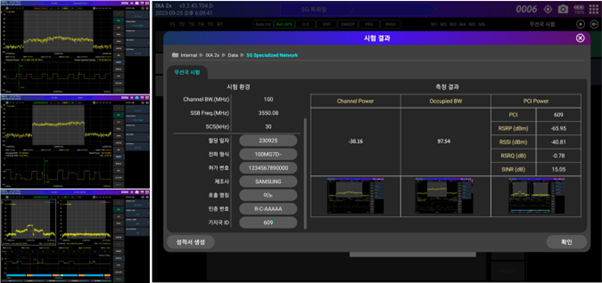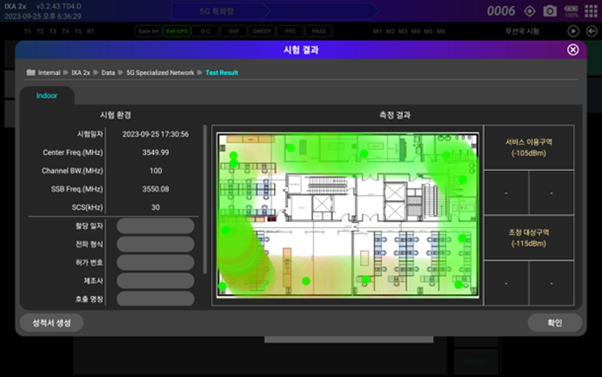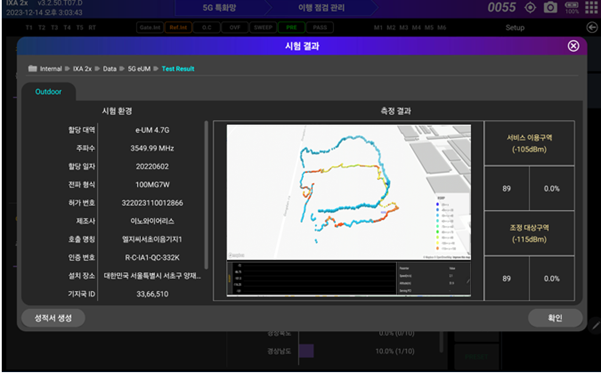Airspace network optimization: Private 5G Use case
As businesses across industries embrace digital transformation and seek enhanced connectivity, private 5G networks are emerging as a powerful solution to address their unique needs. The current market size of Private 5G networks is projected to witness a remarkable growth trajectory, with a CAGR of 42.3% to 51.2% expected until 2030.
Private 5G networks offer enhanced security,
ultra-low latency, and guaranteed bandwidth, making them ideal for
mission-critical applications in industries such as manufacturing, healthcare,
and transportation. Unlike public networks, private 5G networks can be
customized to align precisely with specific business requirements and use
cases, optimizing resource allocation and performance.
The convergence of private 5G with IoT
devices, edge computing, and AI is unlocking unprecedented possibilities for
automation, real-time data analytics, and predictive maintenance.
[Regulatory Landscape of Private 5G in
Korea]
Regulatory frameworks for Private 5G networks
vary across regions. Within KCA's multifaceted role in shaping the Korean
private 5G market, "Developing regulations and guidelines" serves as
a critical cornerstone.
Key areas of regulation
- Spectrum allocation: KCA defines how the limited radio spectrum is allocated for private 5G networks. This involves establishing licensing procedures, determining eligibility criteria for different types of users, and setting spectrum usage fees.
- Technical standards: KCA sets technical standards for network equipment, software, and services to ensure compatibility, interoperability, and network security. This includes defining minimum performance requirements, data encryption protocols, and network management procedures.
- Security and privacy: KCA establishes robust security and privacy regulations to protect sensitive data within private 5G networks. This includes data breach notification requirements, user authentication protocols, and data retention policies.
- Quality of service (QoS): KCA defines minimum QoS requirements for private 5G networks to ensure reliable and consistent connectivity for critical applications. This involves setting metrics for latency, bandwidth, and packet loss.
- Interference prevention: KCA takes measures
to prevent interference between private 5G networks and public networks or
other radio services. This may involve setting geographic separation
requirements or defining power limits for network transmissions.
[Accuver and KCA Collaborate to Pave the
Way for Private 5G Networks]
Private 5G networks are booming in smart
factories, but signal interference between nearby businesses can be a problem.
To ensure smooth operation and regulatory compliance, KCA (Korea Communications Agency) needed a solution for on-site inspections.
Their plan consisted of three key parts:
- Developing a dedicated inspection program: KCA wanted a program specifically designed for private 5G networks, including wireless station verification and signal strength/interference measurements.
- Defining evaluation criteria: Clear
standards were needed to assess the results of inspections and ensure
consistent enforcement.
To tackle this challenge, KCA partnered
with Accuver, a technology company specializing in network testing solutions.
Together, they created a comprehensive
inspection protocol in 2023:
Wireless station verification: Accuver's
portable analyzer (XCAT-IXA) verified the proper configuration of network
equipment.

Indoor/outdoor signal measurements:
XCAT-IXA was used for walking measurements, both inside and outside buildings,
to assess signal strength and coverage.

Outdoor interference in high-rise buildings: For scenarios where walking measurements weren't feasible, Accuver used a drone-based solution (XCAL-Air) in conjunction with XCAT-IXA to measure interference levels more effectively.

After six months of collaboration, the
efficient inspection program is ready. KCA will now report it to the Korean
Ministry of Science and ICT for approval.
This new program will help ensure
responsible development and efficient operation of private 5G networks in
Korea, ultimately benefiting businesses and consumers alike.
[XCAL-Air for Outdoor interference
measurement]
XCAL-Air is a powerful, integrated drone-based package specifically designed for measuring and analyzing performance in airspace networks.
